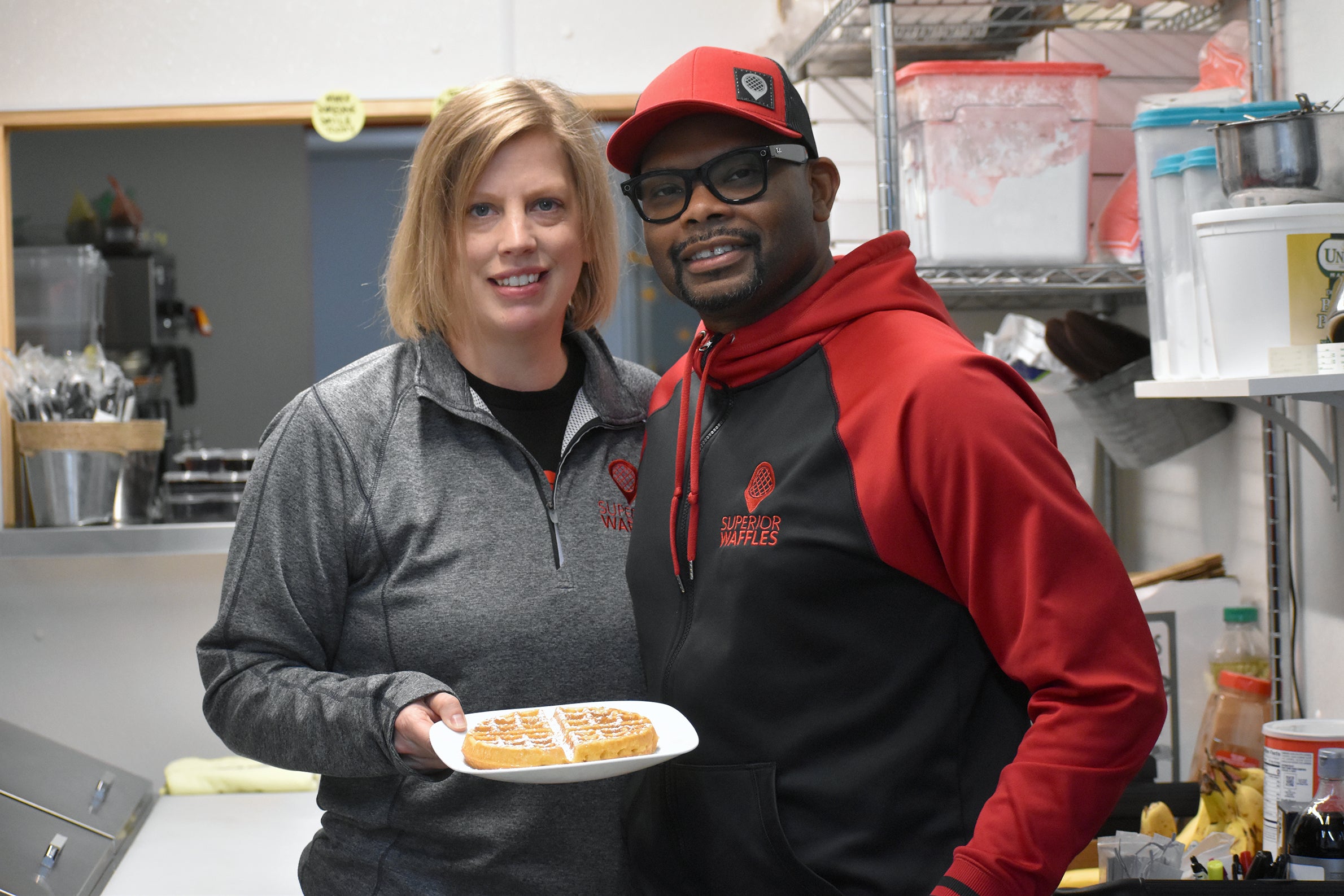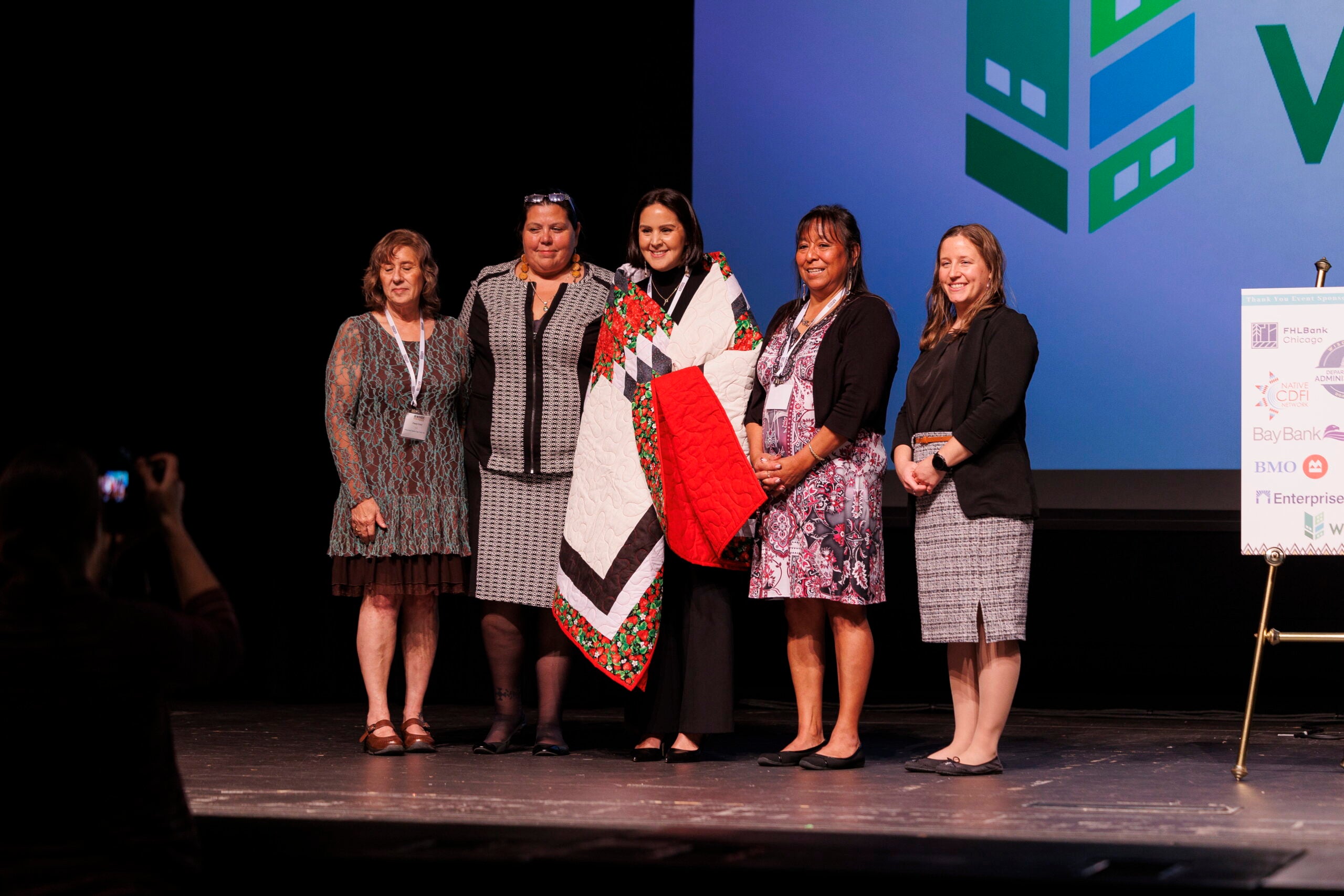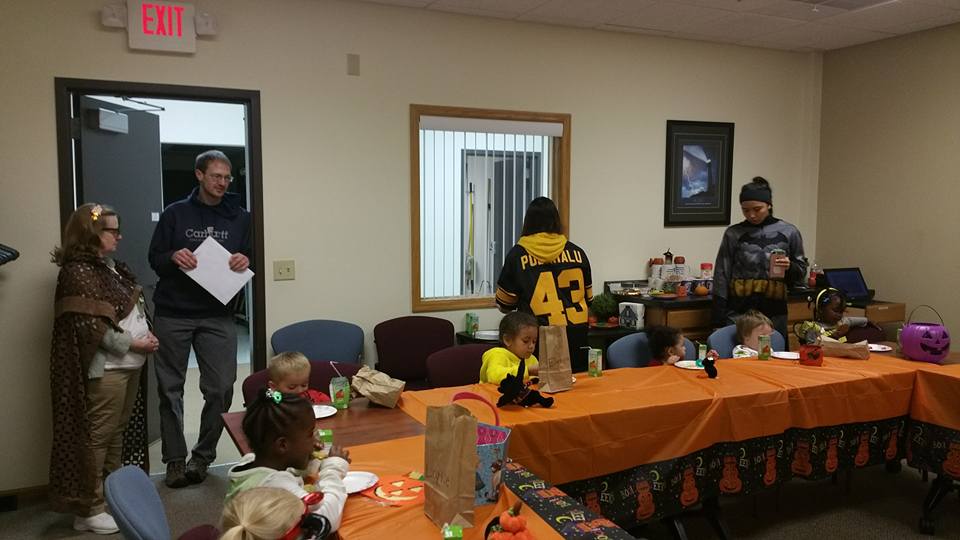Natalie Harris and her husband Cal love waffles. At home, they make them all the time for friends and family. Eight years ago, Natalie bought Cal a commercial waffle iron for his birthday. And the Superior couple always had a secret dream to one day open their own tea and coffee shop with a waffle bar on weekends.
“Then, when the pandemic hit, I got laid off from my job,” in corporate marketing, Natalie said. “I had been there almost 10 years. And then, we went on a road trip. And, on that road trip, we kind of said, ‘Hey, let’s do this. Now is the time.’”
In the summer of 2020, the couple packed up their Toyota RAV4 and headed for Yellowstone National Park. As the miles piled up, so did ideas for waffle recipes that Natalie scribbled on napkins: waffles topped with warm apple crisp or, one of Cal’s favorites, cheesecake. Somewhere along the way, Cal said they thought, “Why not do waffles all the time?”
Stay informed on the latest news
Sign up for WPR’s email newsletter.
That began a yearlong journey for the couple as they sought to open their own business. They did so with help from business owners, advisers and a nonprofit lender that’s set to expand its services to minority-owned businesses across northern Wisconsin.
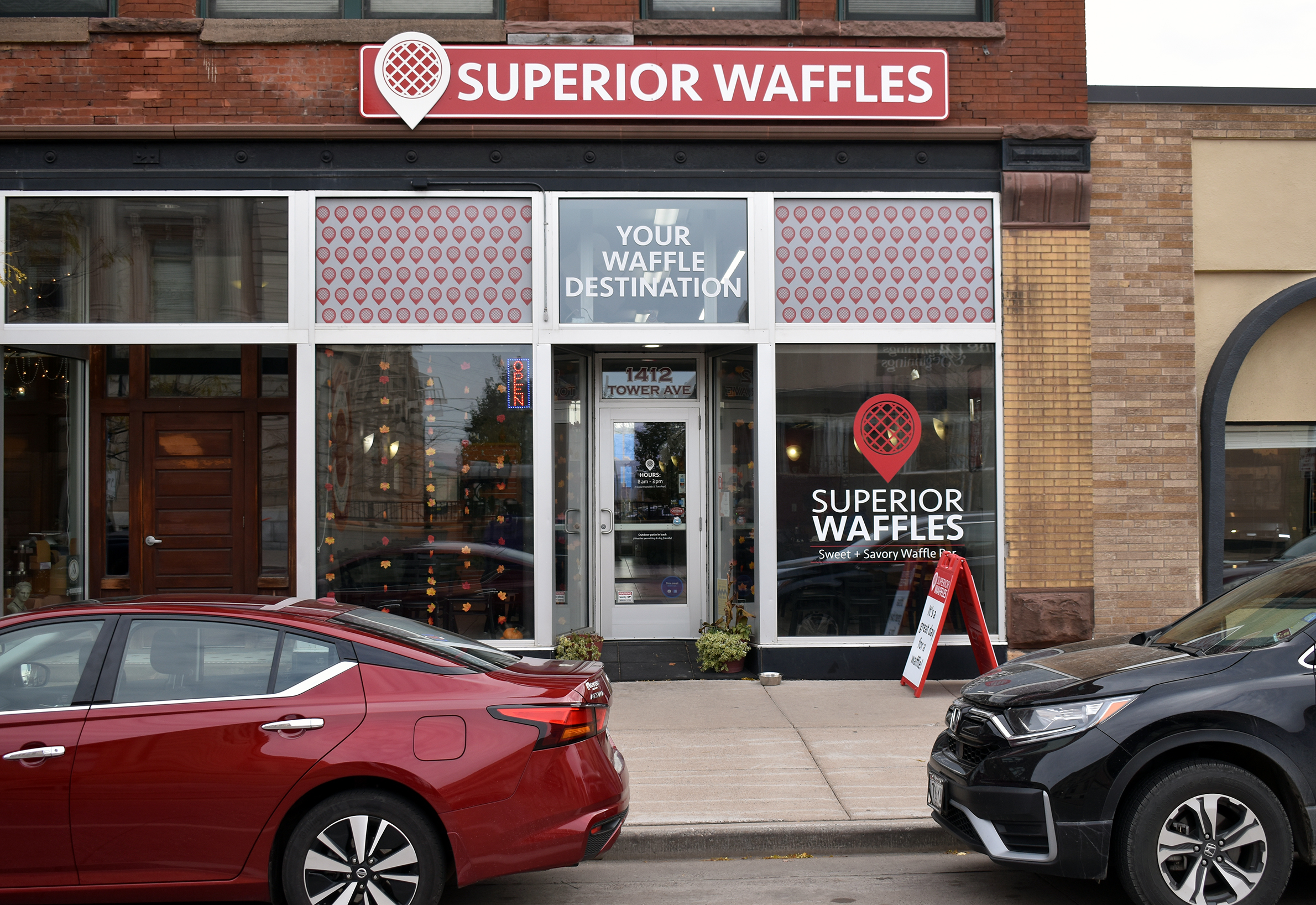
Danielle Kaeding/WPR
“We didn’t know all the ins and outs and the behind-the-scenes stuff that really needs to happen to run a restaurant,” Cal said. “Bringing that to Superior, Wisconsin, we just felt like it was just going to shine, and it was going to be something for the community and something special.”
Last summer, the two opened Superior Waffles in Superior’s downtown.
It didn’t happen overnight. They took business classes at the University of Wisconsin-Superior, connected with other business owners and got a microloan through the nonprofit lender Entrepreneur Fund.
Natalie is white and Cal is Black. For people of color, accessing capital to start their own businesses can be a struggle. A survey last year of 1,200 small businesses found 6 in 10 Black people faced challenges with obtaining startup funds even before the onset of the pandemic, according to the Joint Center for Political and Economic Studies, a Washington D.C. think tank.
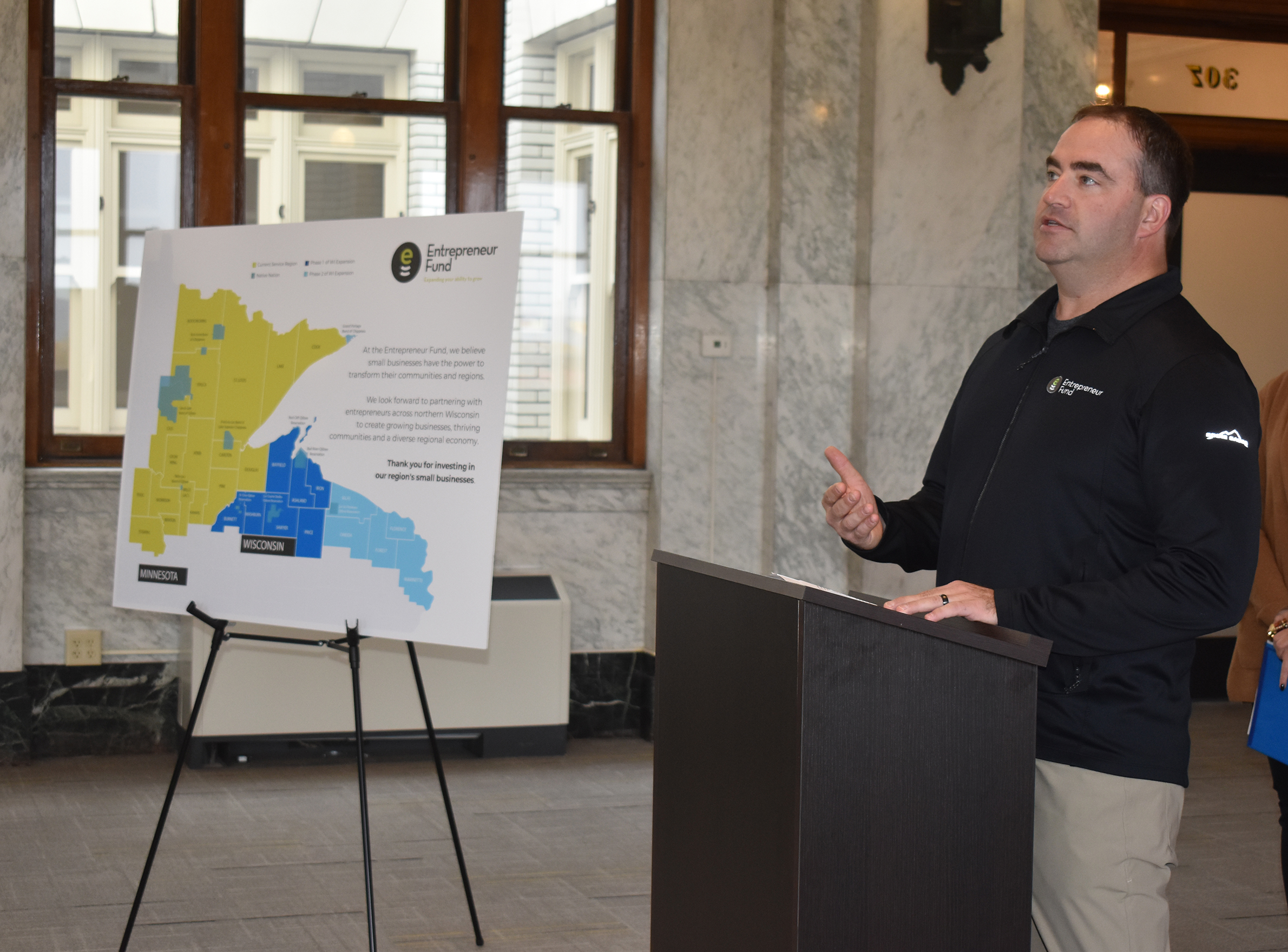
Danielle Kaeding/WPR
And businesses owned by people of color faced more challenges obtaining money to weather the effects of the COVID-19 pandemic, according to a survey by a dozen Federal Reserve Banks. Such firms were more likely to apply for financing than their white counterparts, but they were less likely to receive funding.
Now the Entrepreneur Fund plans to offer more technical support and access to capital for diverse businesses across northern Wisconsin. Communications Manager Carly Viegut said the nonprofit will soon expand funds and services to more counties across northern Wisconsin. The lender currently serves 16 counties in northern Minnesota and Douglas County in Wisconsin.
“In the 12 counties that we will be expanding to, we will be reaching at least 500 entrepreneurs,” Viegut said.
The expansion is made possible with the help of $8 million from a statewide total of $75 million in federal COVID-19 relief set aside for diverse business programs in Wisconsin.
“The goal behind these programs was really to help those that were hardest hit during the pandemic and those that have struggled and traditionally not had access to capital or to expertise to help them start a new business,” said Kathy Blumenfeld, the secretary-designee of the state Department of Administration, which oversees the funds.
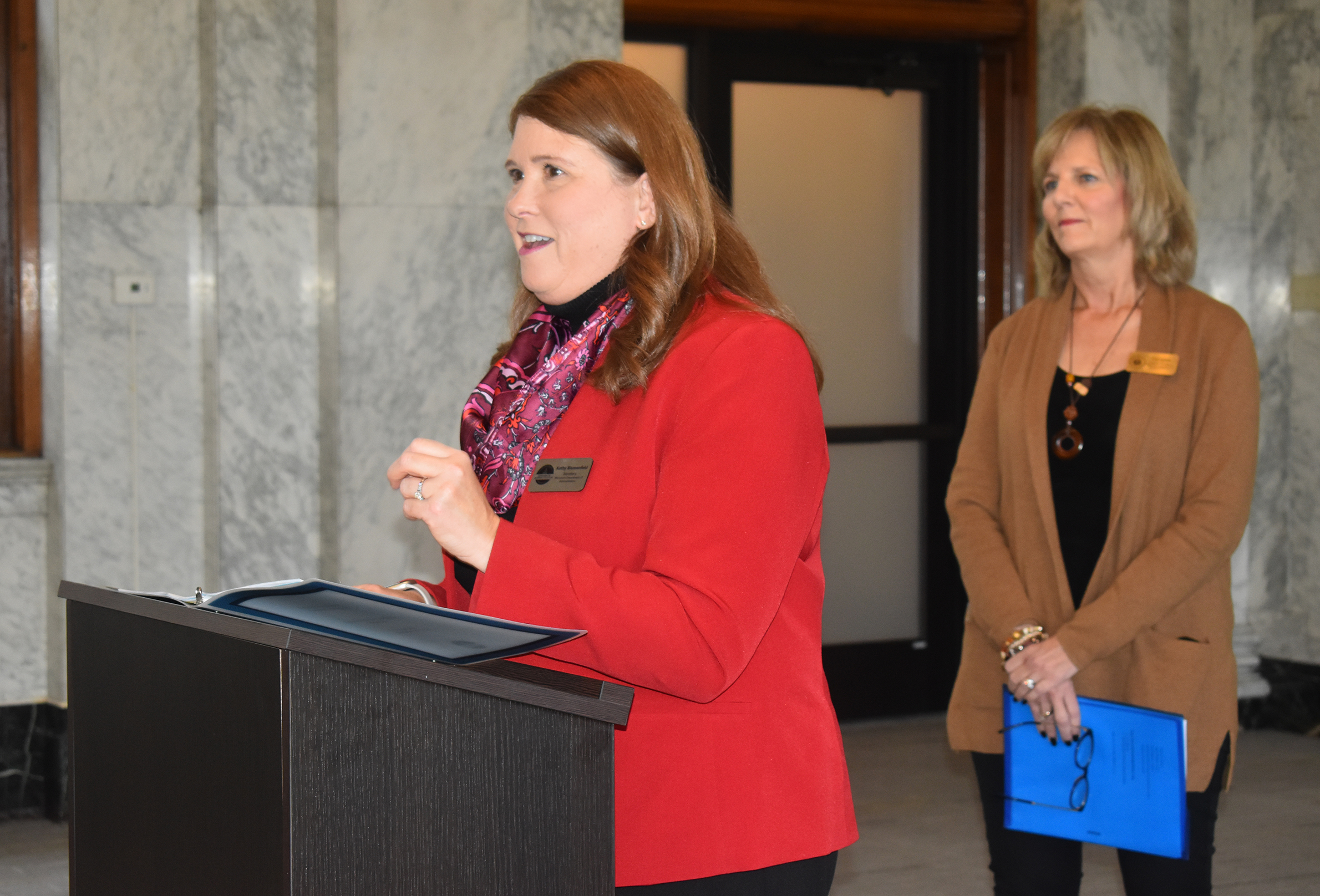
Stephanie Williams, a business advisor for the Entrepreneur Fund who focuses on entrepreneurs who are people of color, said she can count on one hand the number of businesses in Superior that are owned by Black and Indigenous people of color. The fund’s expansion aims to provide more loans, grants and technical assistance to underrepresented communities.
Williams said one of her goals is “getting funders to be more familiar with Black and brown people and with where we come from.”
“We don’t have traditional stories,” she said. “We don’t have traditional generational wealth to pass down, and I’m trying to change that narrative.”
Federal data shows Wisconsin has more than 462,000 small businesses. While racial minorities make up 11 percent of workers, they own roughly 7 percent of businesses in Wisconsin.

The Northwest Regional Planning Commission serves 10 counties across northern Wisconsin. Crystal Rohde, a business development specialist with the commission, said they also serve five tribal nations. Federal data shows Indigenous people own fewer than 1,500 businesses in Wisconsin.
“We definitely see that there are various barriers in that population with different access to funds,” Rohde said.
Cal and Natalie Harris put their own money into the waffle shop, but Cal said the loan they received from the Entrepreneur Fund made a huge difference with buying equipment and setting up the business.
“Those additional funds helped out a lot with the space,” Cal said. “Everyone that comes through, they always compliment us on how the space looks and feels. We put a lot of time and effort into it, but it wouldn’t have been possible without money.”
Without the loan, Cal said it may have taken more time to expand into their next phase of catering events. The two expected it would be a year before they provided that service for weddings, birthdays and baby showers. Natalie said they began catering just two months after opening.
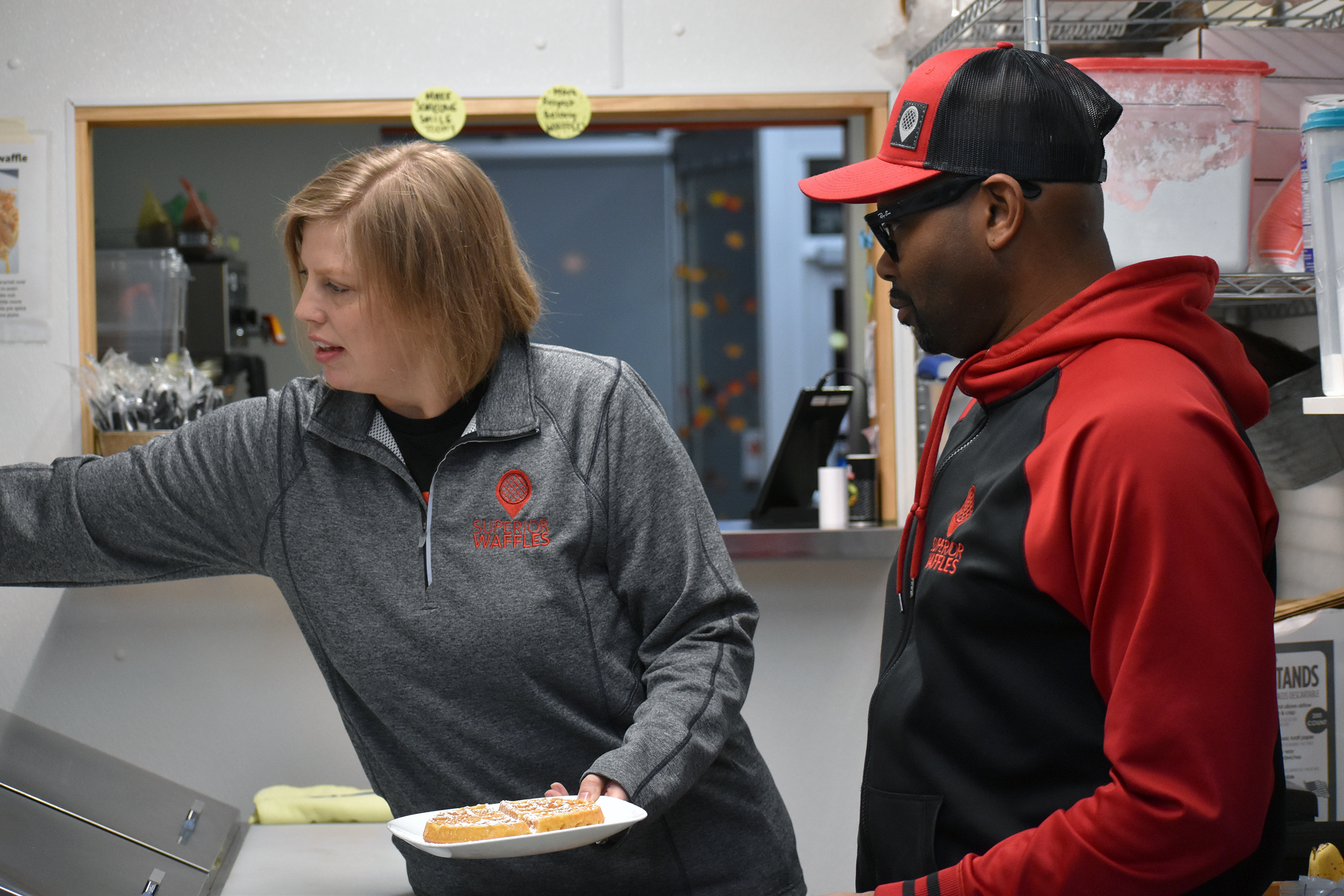
Danielle Kaeding/WPR
The two want to see more diverse businesses grow in northern Wisconsin and help others who are looking to start their own business. Natalie is already mentoring two of her part-time employees. One wants to start a home bakery while the other is setting up a dog-walking business. And, the waffle shop is selling waffle-themed items and other local wares from area business owners.
For those thinking of starting their own business, she said help is out there.
“Organizations like the Entrepreneur Fund, the Small Business Development Center — they want to help. That’s what they’re there for,” she said. “If people can just get connected, there’s help and assistance.”
The Entrepreneur Fund is already ramping up lending. The nonprofit expects to create a revolving loan fund that will provide at least $10 million in flexible lending along with $500,000 in direct grants. The regional lender plans to begin working with seven counties across northern Wisconsin in January with a goal of expanding to all 13 counties over the next three years.
Wisconsin Public Radio, © Copyright 2025, Board of Regents of the University of Wisconsin System and Wisconsin Educational Communications Board.
